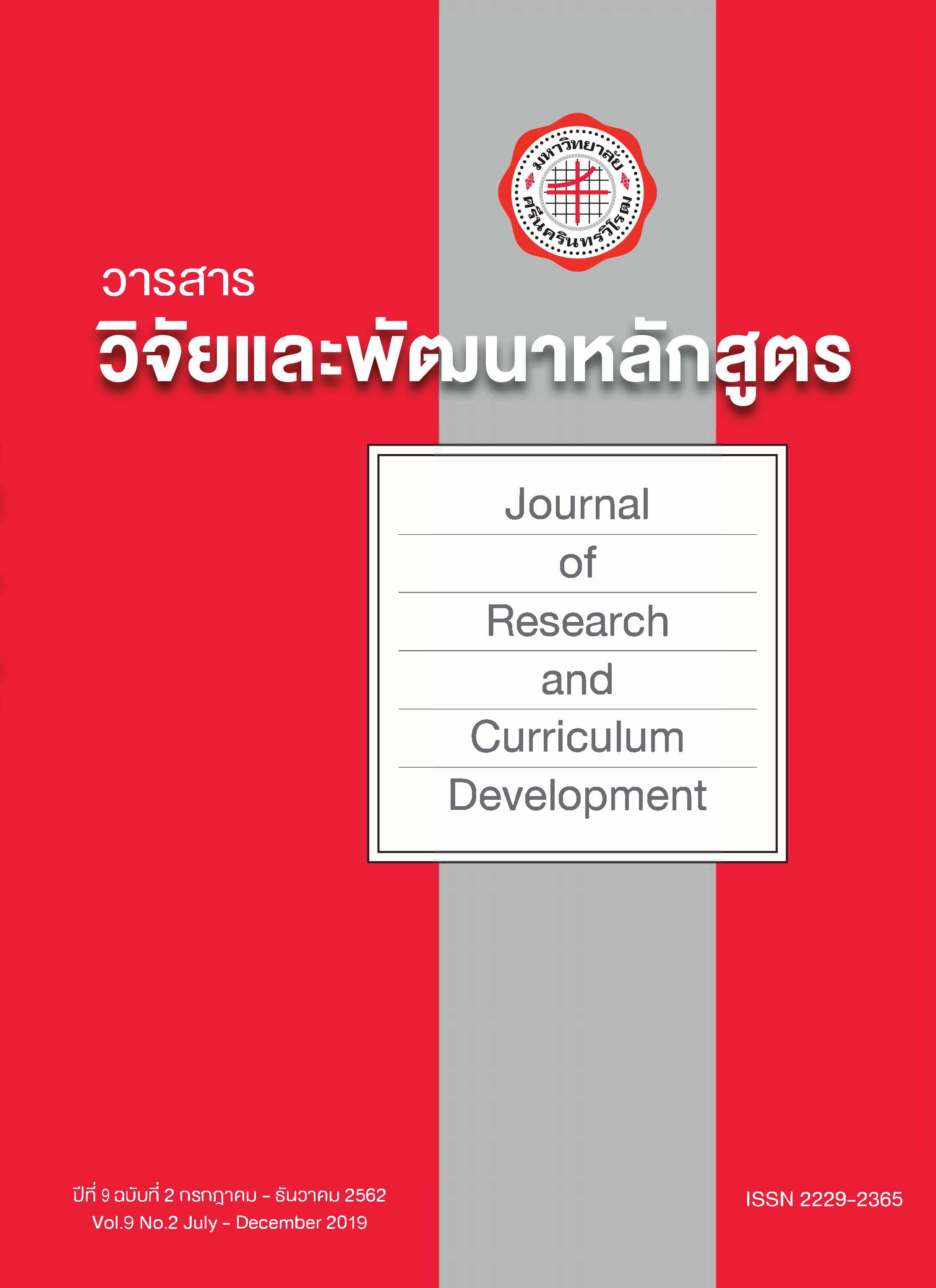ผลของโปรแกรมส่งเสริมการกำกับตนเองและการรับรู้ความสามารถของตน ที่มีต่อการเสริมสร้างความเข้าใจในการอ่านภาษาอังกฤษของนักเรียนชั้นประถมศึกษา
Keywords:
reading comprehension, self-regulated learning, self-efficacyAbstract
The objectives of this study aim to develop an intervention program to increase
the self-efficacy outcomes and study the effects of the intervention program on the reading comprehension skills of primary school students. The developed intervention program was
based on a social cognition model of self-efficacy and self-regulated learning change together with the cooperative learning strategies. The developed intervention program consisted of fourteen sessions, which were divided into multi-faceted sections: the development of knowledge about reading strategies, enhancing self-efficacy for reading, enhancing their self-regulated learning skills. The program included content area documents, media, learning activities, and games and was organized once a week for fourteen weeks, each of which took approximately fifty minutes. The outcome variables of reading comprehension included knowledge about vocabulary, summarizing the information, speeding, and the metacognition.
The mediating efficacy variables included academic self-efficacy, social self-efficacy, and regulation efficacy which were used to test the indicators of self-efficacy.
A pretest posttest control group design was employed in this study and the
intervention program was tested with two hundred thirty six primary school students who were divided into an experimental group and a control group. The data were collected by questionnaire and measurement variables with a reliability range of between .87 to .91. Structural equation modeling was used to evaluate the predictive power of the pathway
of the variables. The goodness of fit statistical analyses indicated that the causal model
of reading comprehension was good fit with the empirical data. The findings indicated that
intervention programs were associated with reading comprehension score directly and indirectly through self-efficacy components. Structural equation modeling also revealed a model form consistent with the previous research generated by the self-efficacy and self-regulation Model. All independent variables in the tested model explained 22.3% of the reading comprehension scores among primary school students. The application of this program was found to be appropriate for the school context and a study on the long-term effectiveness of school-based reading programs were required.


